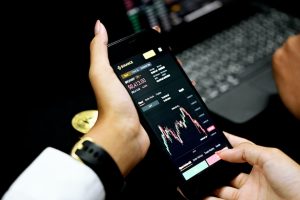The forex market, also known as the foreign exchange market, is the largest financial market in the world. It is a decentralized market where currencies are traded 24 hours a day, 5 days a week. The forex market is controlled by a complex set of factors that influence the buying and selling of currencies. These factors include economic indicators, geopolitical events, central bank policies, and market sentiment. In this article, we will discuss each of these factors in more detail and explain how they influence the forex market.
Economic Indicators:
Economic indicators are statistics that provide information about the economic health of a country. These indicators include inflation rates, gross domestic product (GDP), employment data, consumer spending, and trade balances. Economic indicators are closely watched by traders and investors as they provide insight into the strength of a country’s economy. If an economic indicator shows that a country’s economy is doing well, it is likely to attract foreign investment and cause an increase in demand for that country’s currency. On the other hand, if the economic indicator shows that a country’s economy is weak, it could lead to a decrease in demand for that country’s currency.
Geopolitical Events:
Geopolitical events are events that occur outside of the financial markets but have an impact on them. These events can include political unrest, natural disasters, terrorist attacks, and wars. Geopolitical events can cause volatility in the forex market as traders and investors react to the news. For example, if there is political unrest in a country, it could cause traders to sell off that country’s currency as they see it as a risky investment.
Central Bank Policies:
Central banks are the institutions that are responsible for setting monetary policies in their respective countries. These policies include interest rates, money supply, and exchange rates. Central banks can influence the forex market by changing these policies. For example, if a central bank raises interest rates, it can attract foreign investment and cause an increase in demand for that country’s currency. On the other hand, if a central bank lowers interest rates, it can cause a decrease in demand for that country’s currency.
Market Sentiment:
Market sentiment refers to the overall attitude of traders and investors towards the forex market. Market sentiment can be positive or negative, and it can influence the buying and selling of currencies. If the market sentiment is positive, it can lead to an increase in demand for a currency. Conversely, if the market sentiment is negative, it can lead to a decrease in demand for a currency.
In conclusion, the forex market is a complex market that is controlled by a variety of factors. Economic indicators, geopolitical events, central bank policies, and market sentiment all play a role in influencing the buying and selling of currencies. Traders and investors need to stay informed about these factors and how they can impact the forex market. By doing so, they can make informed decisions and potentially profit from fluctuations in the market.





